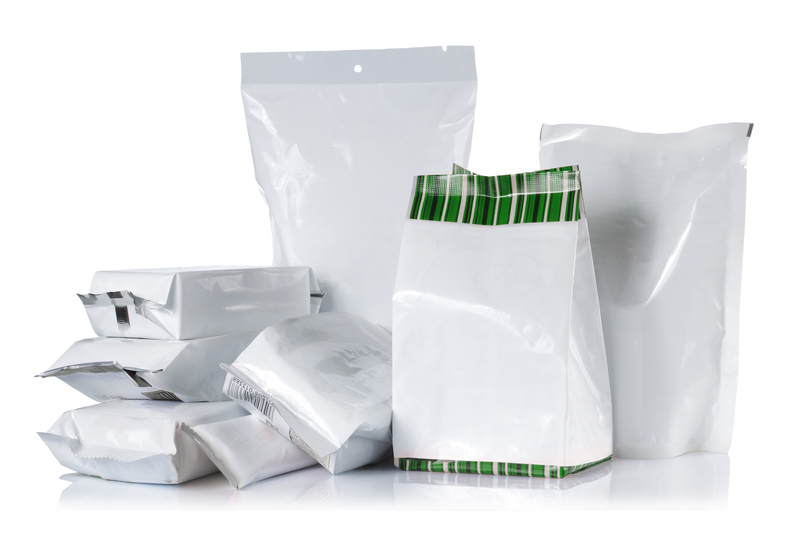Maximize Savings Dealing With Bulky Waste and Unwanted Items
Every household or business faces the challenge of disposing of bulky waste and unwanted items at some point. Whether it's during a move, renovation, or spring cleaning, the need to clear out old furniture, electronics, appliances, and other large items is inevitable. Properly managing and disposing of these materials not only helps you clear your space, but it can also save you money--if done right! In this comprehensive guide, we'll show you smart ways to maximize your savings when dealing with bulky waste and unwanted items, ensuring a clutter-free environment without breaking the bank.
Understanding Bulky Waste and Unwanted Items
Before diving into solutions, it's crucial to understand what constitutes bulky waste and unwanted items. Typically, bulky waste refers to large items that cannot fit into regular garbage bins. This includes:
- Furniture (sofas, beds, wardrobes, tables)
- Appliances (refrigerators, washing machines, dishwashers)
- Electronics (old TVs, computers, monitors)
- Bicycles, mattresses, carpets, and more
Unwanted items can be bulky or non-bulky and usually refer to things you no longer need or want, such as outdated clothing, kitchenware, toys, and household decor.

Why Proper Disposal Matters
Disposing of bulky waste and unwanted items improperly can lead to several problems:
- Fines and penalties for illegal dumping
- Environmental hazards if items end up in landfills
- Wasted resources that could be reused or recycled
By choosing the right disposal methods, you not only protect the environment but also maximize your savings and sometimes even earn extra cash!
Strategic Steps to Maximize Savings on Bulky Waste Removal
1. Audit and Categorize Your Bulky Waste
The first step to saving money is to know exactly what you're dealing with. Go through all the items you want to get rid of, and categorize them into:
- Reusable or sellable items
- Donations
- Recyclables
- Waste
Creating these categories helps minimize the amount of waste you pay to dispose of, and identifies potential sources of revenue.
2. Sell Unwanted Items and Bulky Furniture
One of the best ways to maximize savings when handling unwanted items is by selling them. You'd be surprised at what people are willing to buy, even items that seem outdated or worn.
- ${Online marketplaces}: Facebook Marketplace, Craigslist, eBay, Gumtree
- Garage or yard sales
- Second-hand stores and consignment shops
- Specialty platforms (for electronics, vintage, or collectibles)
Tip: Clean and photograph your items well. Clear, honest listings typically attract more buyers.
3. Donate to Maximize Value and Minimize Disposal Costs
Donating is a win-win: you help those in need, keep items out of landfills, and sometimes receive tax deductions! Many organizations will even pick up bulky donations for free, saving you time and money.
- Charity shops (Goodwill, Salvation Army, local centers)
- Homeless shelters
- Schools and churches
- Re-use and upcycling organizations
Call ahead to ensure your items are accepted, and ask about free pick-up services for large donations.
4. Explore Free and Low-Cost Bulky Waste Collection Services
Many municipalities provide free or subsidized bulky waste pick-up for residents, often on a scheduled basis. Take advantage of these community programs!
- Check your city or district website for collection days and criteria
- Bulk drop-off events at recycling centers
- Special provisions for seniors or people with disabilities
Remember: There may be limits on how many items can be collected per pickup or restrictions on what is accepted.
5. Recycle Bulky Waste Responsibly
Recycling is key when dealing with large items like electronics and appliances, which may contain hazardous materials. Significant savings are possible when you avoid landfill fees by recycling:
- Electronics recycling programs at electronics retailers (Best Buy, Staples)
- Municipal recycling depots
- Scrap metal merchants for appliances and metal furniture
Call ahead to confirm which items are accepted and if any fees apply.
6. Rent a Dumpster or Skip Bin for Big Clear-Outs
If you're undertaking a major decluttering effort, home renovation, or estate cleanout, consider renting a dumpster or skip bin. Here's how to save:
- Order the right size bin to avoid overpaying for unused space
- Compare prices from multiple providers
- Sort recyclables and sellable items before using the bin--only toss true waste
- Share bin space (and cost) with neighbors who also need to dispose of items
7. DIY Hauling vs. Hiring a Junk Removal Service
Handling bulky waste yourself can often save money, but it requires time, a suitable vehicle, and sometimes help to lift heavy items. Consider:
- Borrowing or renting a truck or trailer for one big haul
- Making multiple trips to municipal waste sites (check opening hours and fees)
- Enlisting friends or family for assistance (pizza and drinks are cheaper than professional crews!)
If you hire a junk removal company, get multiple quotes, check what is included (labor, disposal fees), and ask about discounts for sorted or pre-assembled piles.
8. Upcycle Old Furniture and Bulky Items
Upcycling is the creative process of transforming unwanted items into useful or decorative pieces. Not only does this minimize disposal costs, but it can also generate value through:
- DIY furniture makeovers (paint, reupholster, convert)
- Garden projects (planters from old drawers, benches from beds)
- Crafts and art installations
Search online for ideas tailored to your bulky items.
The Cost of Bulky Waste Disposal: What to Expect
How much you pay to dispose of bulky or unwanted items will depend on several factors:
- Local waste management regulations and rates
- Type and volume of items
- Distance to disposal/recycling centers
- Labor and transportation costs (if hiring services)
- Possible hazardous materials surcharges (for electronics, mattresses, etc.)
Comparing costs before acting is essential for maximizing your savings.
Sample Costs for Bulky Waste Removal
- Municipal "free" pickup: Usually limited to a set number per year
- Junk removal company: $50-$800+ depending on truck size
- Dumpster rental: $200-$500 average for a mid-size bin, plus landfill fees
- Electronic recycling: Sometimes free, but may have a handling fee
Always ask for quotes and clarify any extra charges before booking.
How to Reduce Bulky Waste: Prevention Is Key
The best way to maximize your savings dealing with bulky waste and unwanted items is to produce less to begin with! Here's how:
1. Buy Quality Over Quantity
Investing in durable, timeless pieces means less frequent replacements.
2. Choose Multi-Purpose and Modular Items
Furniture that adapts to changing needs prevents unnecessary purchases and disposal.
3. Maintain and Repair
Regularly cleaning and repairing items prolongs their life and saves money in the long term.
4. Borrow, Rent, or Share
For rarely used items, borrowing or renting is cost-effective and reduces waste.
5. Opt for Second-Hand and Vintage
Buying used items keeps goods in circulation and saves you money upfront and disposal costs later.
Benefits of Maximizing Savings With Bulky Waste Solutions
The right approach to handling large, unwanted items helps you:
- Declutter home or office space efficiently
- Save money on disposal and potentially earn from sales
- Reduce environmental footprint and landfill use
- Support local charities and social causes
- Promote a sustainable, circular economy
Frequently Asked Questions: Bulky Waste and Unwanted Items
What items are considered bulky waste?
Bulky waste typically includes anything too large for standard bins, such as mattresses, furniture, appliances, and large electronics.
Can I dispose of bulky waste for free?
Many municipalities provide periodic free collection, but always check your local schedule and restrictions in advance.
Are there risks to illegal dumping of bulky items?
Yes, illegal dumping can result in hefty fines and legal action--not to mention harm to the environment.
What happens to my items after disposal?
Properly sorted items are often recycled or resold by charities and recyclers, reducing environmental impact.

Final Thoughts: Make Bulky Waste Management Work for Your Wallet and the Planet
Maximizing savings when dealing with bulky waste and unwanted items isn't just about cutting disposal costs--it's about creating value. By selling, donating, recycling, or upcycling items, you can lower (or even eliminate) expenses while making positive environmental and community impacts. Smart planning and proactive strategies--from organizing a garage sale to leveraging municipal collection programs--help you keep more money in your pocket and less trash in the landfill.
Remember, every item you divert from the waste stream is a win for your wallet--and for the world.
Checklist: Steps to Save Money on Bulky Waste Disposal
- Audit your items and set aside anything sellable or donatable
- Use free or subsidized pick-up services whenever possible
- Recycle electronics and appliances responsibly
- Price-shop if hiring disposal or renting a dumpster
- Embrace creative reuse and repair
- Choose sustainable products to prevent future bulky waste
Maximize your savings by reducing, reusing, recycling--and only disposing as a last resort!
```